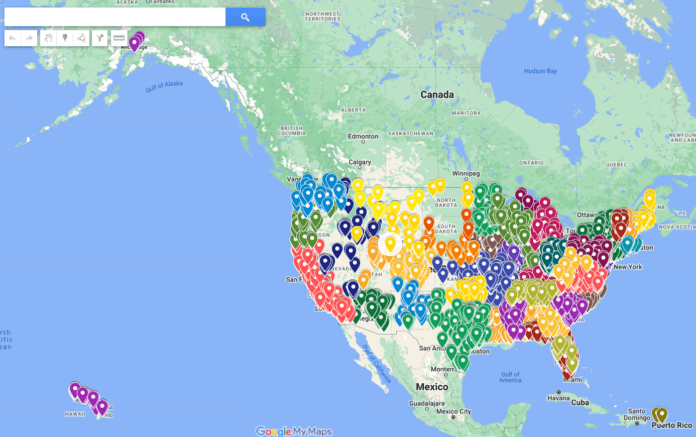The mortgage field services industry continues to spiral into a crisis of its own making. While national servicers and prime vendors speak of modernization, streamlining, and automation, those performing the actual work — Field Service Technicians and Inspectors on the ground — are being driven out of the industry through financial attrition. Nowhere is this more apparent than in the growing number of bankruptcies among Field Service Technicians, many of whom cite predatory chargebacks, delayed payments, and a complete lack of regulatory accountability as the cause of their collapse.
While Inspectors have long operated under a separate set of standards, with pay-per-inspection models and lighter physical risk, Field Service Technicians shoulder the brunt of physical labor: mowing lawns, boarding windows, securing doors, winterizing pipes, and hauling debris. These are not just maintenance tasks — they are frontline defenses against neighborhood decline. And yet, the compensation offered to these Field Service Technicians, often through third-party order mills, hasn’t kept pace with inflation, risk, or the costs of doing business. What’s worse, many are now paying out of pocket for work they already completed, thanks to unjustified chargebacks.
A Field Service Technician, operating out of Pennsylvania, shared the grim details of his financial unraveling. “We did a lock change, initial secure, and a full lawn cut,” he said, providing time-stamped photos and chain-of-custody documentation. “Everything uploaded within 24 hours. A month later, the vendor claims ‘photo mismatch’ and pulls the $280. No explanation, no appeal, just gone. Add in a $75 admin fee, and it cost us to complete that job.” Stories like his are no longer isolated outliers — they are structural consequences of an economic model that depends on labor absorbing all risk and none of the reward.
Inspectors, meanwhile, report their own challenges — especially in the form of hybrid work orders that conflate inspection and preservation into single tickets. This blurring of job roles allows vendors to bill servicers for multiple services, while paying a flat or reduced fee to the laborers performing them. One Inspector based in Michigan noted, “I’ve been asked to complete occupancy checks or say take preliminary photos of damage on exteriors and the key does not fit, but when I report the need for are-key or lock change, suddenly I’m told to go back and leave a key — with no additional pay. That’s not inspecting, that’s preservation.” This role confusion not only devalues specialized skillsets but creates new opportunities for vendors to manipulate compliance to their advantage.
James Franklin, who manages a mid-size preservation firm in Georgia, expressed growing frustration with the payment timelines and the vanishing accountability. “We front all the costs: fuel, supplies, Field Service Technician pay. We submit everything in under 48 hours, but we don’t see a dime for 60 to 90 days—if we’re lucky. Then one QC agent hits a checkbox wrong, and your entire invoice gets reversed. Multiply that by 20–30 work orders a week, and it’s like trying to run a business in quicksand.” Franklin said he’s watched five Field Service Technicians file for bankruptcy just this year.
Adding further pressure is the rise of AI-driven quality control. Some order mills now use software to auto-flag discrepancies based on photo metadata, GPS tags, or checklist patterns — without human review. Field Service Technicians say this has turned a broken system into an impossible one. “I took a photo from the street because the gate was locked and the neighbor had called the police the last time I entered,” said Tracy Silimone, a Field Service Technician from Indiana. “But the system just saw ‘no backyard photo’ and flagged it as incomplete. There’s no appeal. You’re just marked down, unpaid, and told to ‘do better next time.’”
Community leaders are beginning to take notice. Maria González, director of a housing nonprofit in St. Louis, said she’s seen the indirect impact firsthand. “When you lose your Field Service Technicians; when a Client simply abandons the asset, blight moves in fast. Grass grows tall, doors stay unsecured, vandals take over. These aren’t just tasks — they’re vital services. And these Field Service Technicians are often local. They live in the neighborhoods they’re trying to protect.” González said she’s seen a 47 percent rise in code enforcement violations over the past year, directly correlating to labor shortages in field services.
The issue is magnified by the decentralized nature of the industry. National servicers subcontract to regional vendors, who subcontract again to local order mills, who then find and dispatch labor. Each level in that chain takes a cut, and with each step, responsibility for fairness, oversight, and payment gets more diluted. Field Service Technicians and Inspectors are left at the bottom — simultaneously blamed for failures and stripped of recourse.
Efforts to bring reform are beginning to coalesce, albeit slowly. The International Association of Field Service Technicians (IAFST), a labor-centric nonprofit trade group, has begun collecting testimonies from both Field Service Technicians and Inspectors. Their goal: to build a comprehensive case showing systemic exploitation and present it to legislative and regulatory bodies. With IAFST University, they have brought training as the centerpiece. “This isn’t about isolated bad actors,” an IAFST spokesperson said. “It’s about a business model that only survives by cannibalizing its own workforce.”
Unless structural changes are made to protect the financial rights of those performing the work, the mortgage field services pipeline will continue to fracture. Field Service Technicians will walk away, Inspectors will refuse hybrid orders, and communities will suffer the consequences. The system cannot function without those at the ground level. And right now, that foundation is collapsing, one chargeback at a time. And while HUD Secretary Scott Turner’s cuts at HUD may be ordered from on high, the reality is that HUD is not simply an outlier.









